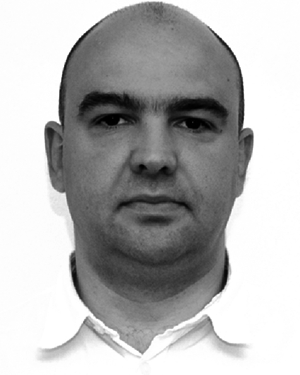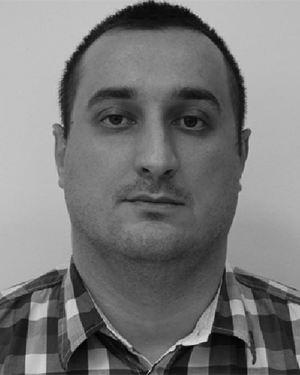Abstract:
The case study presented in this paper describes the pedagogical aspects and experience gathered while using an e-learning tool named IPA-PBL. Its main purpose is to prov...Show MoreMetadata
Abstract:
The case study presented in this paper describes the pedagogical aspects and experience gathered while using an e-learning tool named IPA-PBL. Its main purpose is to provide additional motivation for adopting theoretical principles and procedures in a computer networks course. In the proposed model, the sequencing of activities of the learning process is grouped into three phases based on educational goals. In this way, the same tool is used on several courses with different curricula. In IPA-PBL, problem-based learning (PBL) is applied as a pedagogical strategy, as well as a set of concrete methods implemented in the software. Together with the pedagogical model, specific domain ontology is designed. In this way, the learner's knowledge can be analyzed in order to collect data necessary for the dynamic adaptation of system behavior. The results collected while using IPA-PBL are compared to those obtained without using the system. Statistical analysis, together with pertaining considerations and conclusions, are also presented in the paper.
Published in: IEEE Transactions on Learning Technologies ( Volume: 10, Issue: 3, 01 July-Sept. 2017)
Funding Agency:

Informatics and Computing Department, University Singidunum, Belgrade, Serbia
Aleksandar Jevremovic received the BSc, MSc and PhD degrees at
Singidunum University, Serbia. He is an associate professor of computer network security at Singidunum University. So
far, he has authored/co-authored a number of research papers and made contributions to three books about computer
networks, computer networks security, and Web development. He is recognized as an Expert Level instructor at the Cisco
Network...Show More
Aleksandar Jevremovic received the BSc, MSc and PhD degrees at
Singidunum University, Serbia. He is an associate professor of computer network security at Singidunum University. So
far, he has authored/co-authored a number of research papers and made contributions to three books about computer
networks, computer networks security, and Web development. He is recognized as an Expert Level instructor at the Cisco
Network...View more

Center for Simulations and Distance Learning, University of Defense, Belgrade, Serbia
Goran Shimic received the BSc at University of Defense, MSc at
University of Belgrade and PhD degree at Singidunum University, Serbia. He is the director of the Center for
Simulations and Distance Learning, Military Academy, University of Defense, Belgrade, Serbia (
http://www.va.mod.gov.rs/cms/view.php?id=21662). He is also an associate professor of computer science
specialized in expert systems, object-oriented desig...Show More
Goran Shimic received the BSc at University of Defense, MSc at
University of Belgrade and PhD degree at Singidunum University, Serbia. He is the director of the Center for
Simulations and Distance Learning, Military Academy, University of Defense, Belgrade, Serbia (
http://www.va.mod.gov.rs/cms/view.php?id=21662). He is also an associate professor of computer science
specialized in expert systems, object-oriented desig...View more

Informatics and Computing Department, University Singidunum, Belgrade, Serbia
Mladen Veinovic received the BSc, MSc, and PhD degrees from the
Faculty of Electrical Engineering, University of Belgrade, Serbia, in 1986, 1990, and 1996, respectively. From 1987 to
2005, he worked in the Institute of Applied Mathematics and Electronics, Belgrade, where he was head of the department
for speech processing. Since 2005, he has been working at Singidunum University, where he is currently a vice rector.
H...Show More
Mladen Veinovic received the BSc, MSc, and PhD degrees from the
Faculty of Electrical Engineering, University of Belgrade, Serbia, in 1986, 1990, and 1996, respectively. From 1987 to
2005, he worked in the Institute of Applied Mathematics and Electronics, Belgrade, where he was head of the department
for speech processing. Since 2005, he has been working at Singidunum University, where he is currently a vice rector.
H...View more

Informatics and Computing Department, University Sinergija, Bijeljina, Bosnia and Herzegovina
Nenad Ristic received the bachelor's degree in the field of
programing from Sinergija University in 2009, and the master's degree in the field of advanced information
technologies from Singidunum University in 2010. He is currently working toward the PhD degree in the field of
advanced security systems at Singidunum University. Since March 2007, he has been a head IT at Sinergija University, a
graduate teaching assist...Show More
Nenad Ristic received the bachelor's degree in the field of
programing from Sinergija University in 2009, and the master's degree in the field of advanced information
technologies from Singidunum University in 2010. He is currently working toward the PhD degree in the field of
advanced security systems at Singidunum University. Since March 2007, he has been a head IT at Sinergija University, a
graduate teaching assist...View more

Informatics and Computing Department, University Singidunum, Belgrade, Serbia
Aleksandar Jevremovic received the BSc, MSc and PhD degrees at
Singidunum University, Serbia. He is an associate professor of computer network security at Singidunum University. So
far, he has authored/co-authored a number of research papers and made contributions to three books about computer
networks, computer networks security, and Web development. He is recognized as an Expert Level instructor at the Cisco
Networking Academy program.
Aleksandar Jevremovic received the BSc, MSc and PhD degrees at
Singidunum University, Serbia. He is an associate professor of computer network security at Singidunum University. So
far, he has authored/co-authored a number of research papers and made contributions to three books about computer
networks, computer networks security, and Web development. He is recognized as an Expert Level instructor at the Cisco
Networking Academy program.View more

Center for Simulations and Distance Learning, University of Defense, Belgrade, Serbia
Goran Shimic received the BSc at University of Defense, MSc at
University of Belgrade and PhD degree at Singidunum University, Serbia. He is the director of the Center for
Simulations and Distance Learning, Military Academy, University of Defense, Belgrade, Serbia (
http://www.va.mod.gov.rs/cms/view.php?id=21662). He is also an associate professor of computer science
specialized in expert systems, object-oriented design and implementation, and business software applications. His
current research interests include area of interoperability between different learning resources & systems, and
their integration with diverse types of Web services and applications. So far, he has authored/co-authored about 50
research papers and made contributions to seven books. He is a member of the GOODOL-DAI research network (
http://www.goodoldai.org/goran_simic).
Goran Shimic received the BSc at University of Defense, MSc at
University of Belgrade and PhD degree at Singidunum University, Serbia. He is the director of the Center for
Simulations and Distance Learning, Military Academy, University of Defense, Belgrade, Serbia (
http://www.va.mod.gov.rs/cms/view.php?id=21662). He is also an associate professor of computer science
specialized in expert systems, object-oriented design and implementation, and business software applications. His
current research interests include area of interoperability between different learning resources & systems, and
their integration with diverse types of Web services and applications. So far, he has authored/co-authored about 50
research papers and made contributions to seven books. He is a member of the GOODOL-DAI research network (
http://www.goodoldai.org/goran_simic).View more

Informatics and Computing Department, University Singidunum, Belgrade, Serbia
Mladen Veinovic received the BSc, MSc, and PhD degrees from the
Faculty of Electrical Engineering, University of Belgrade, Serbia, in 1986, 1990, and 1996, respectively. From 1987 to
2005, he worked in the Institute of Applied Mathematics and Electronics, Belgrade, where he was head of the department
for speech processing. Since 2005, he has been working at Singidunum University, where he is currently a vice rector.
He is the author of seven books and a number of journals and conference scientific papers. His current research
interests include security, computer networks, data bases, speech analysis and compression, and digital signal
processing.
Mladen Veinovic received the BSc, MSc, and PhD degrees from the
Faculty of Electrical Engineering, University of Belgrade, Serbia, in 1986, 1990, and 1996, respectively. From 1987 to
2005, he worked in the Institute of Applied Mathematics and Electronics, Belgrade, where he was head of the department
for speech processing. Since 2005, he has been working at Singidunum University, where he is currently a vice rector.
He is the author of seven books and a number of journals and conference scientific papers. His current research
interests include security, computer networks, data bases, speech analysis and compression, and digital signal
processing.View more

Informatics and Computing Department, University Sinergija, Bijeljina, Bosnia and Herzegovina
Nenad Ristic received the bachelor's degree in the field of
programing from Sinergija University in 2009, and the master's degree in the field of advanced information
technologies from Singidunum University in 2010. He is currently working toward the PhD degree in the field of
advanced security systems at Singidunum University. Since March 2007, he has been a head IT at Sinergija University, a
graduate teaching assistant at Sinergija University since April 2009, and a program administrator at Microsoft IT
Academy at Sinergija University since January 2011. His fields of interests include computer networks, Web
development, software engineering, and computer science education.
Nenad Ristic received the bachelor's degree in the field of
programing from Sinergija University in 2009, and the master's degree in the field of advanced information
technologies from Singidunum University in 2010. He is currently working toward the PhD degree in the field of
advanced security systems at Singidunum University. Since March 2007, he has been a head IT at Sinergija University, a
graduate teaching assistant at Sinergija University since April 2009, and a program administrator at Microsoft IT
Academy at Sinergija University since January 2011. His fields of interests include computer networks, Web
development, software engineering, and computer science education.View more

